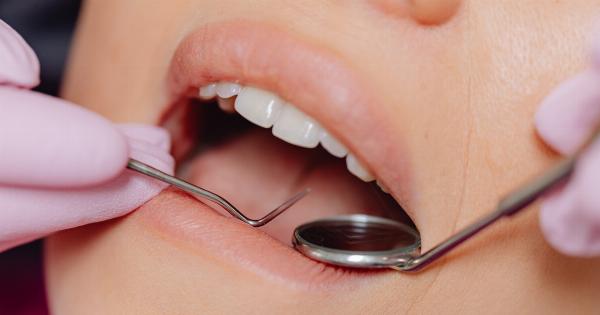As a parent, it can be easy to overlook the significance of your baby’s bottle. After all, it’s just a tool to help them eat or drink, right? Wrong.
The truth is that ignoring your baby’s bottle can have serious consequences on their health and well-being. In this article, we will explore the potential dangers of ignoring your baby’s bottle and why it is important to pay attention to this everyday item.
The Importance of Proper Bottle Preparation
One of the key aspects of bottle feeding is ensuring that the bottle is properly prepared. This involves sterilizing the bottle to eliminate harmful bacteria and using the correct ratio of water to formula or breast milk.
Ignoring these preparation steps can lead to digestive issues, infections, and even malnutrition in babies. It is vital to follow the recommended guidelines provided by healthcare professionals to ensure your baby’s safety and nutrition.
Understanding the Risks of Contaminated Bottles
Another danger of ignoring your baby’s bottle is the risk of contamination. Bottles that are not cleaned properly or left out for extended periods can become breeding grounds for bacteria.
When a baby drinks from a contaminated bottle, they are at risk of developing gastrointestinal infections, such as diarrhea and vomiting. These infections can be especially dangerous for infants, as they have weaker immune systems compared to older children and adults.
Avoiding Overfeeding and Underfeeding
Ignoring your baby’s bottle can also lead to issues with feeding amounts. Overfeeding can result in problems such as excessive weight gain, reflux, and discomfort.
On the other hand, underfeeding can cause malnutrition and stunt your baby’s growth and development. By monitoring your baby’s feeding patterns and paying attention to their cues, you can ensure that they are receiving the right amount of nutrition to support their growth.
The Impact of Bottle Material on Health
The choice of bottle material is another factor that should not be ignored. Plastic bottles, especially those made with potentially harmful chemicals such as BPA, can leach toxins into the milk or formula.
These toxins may disrupt your baby’s hormonal balance and have long-term health effects. It is recommended to choose bottles made from safer materials like glass or BPA-free plastics. Regularly inspecting bottles for cracks or chips is also important to prevent any potential hazards.
Recognizing the Signs of Nipple Damage
Nipple damage is a common issue that can be caused by neglecting your baby’s bottle. Using a bottle with a damaged nipple can lead to pain, discomfort, and difficulty with feeding.
It is crucial to regularly check the condition of your baby’s bottle nipple, as wear and tear can occur over time. If you notice any cracks, tears, or signs of deterioration, it is essential to replace the nipple to ensure your baby’s feeding experience is comfortable and safe.
Paying Attention to Temperature
Serving milk or formula at the correct temperature is crucial for your baby’s well-being. Ignoring this aspect can result in burns or scalds if the liquid is too hot, or discomfort and refusal to drink if it is too cold.
Always check the temperature of the milk or formula before feeding your baby. Use a bottle warmer or warm water bath to ensure it is at a safe and comfortable temperature for your little one.
Preventing Tooth Decay and Oral Health Issues
Baby bottle tooth decay is a dental problem that can arise from ignoring your baby’s bottle.
When babies fall asleep with a bottle containing milk, formula, or juice, the liquid pools around their teeth, leading to the growth of harmful bacteria that cause tooth decay. This can result in pain, cavities, and even the need for dental treatments at a very young age. To prevent tooth decay, never allow your baby to sleep with a bottle and encourage them to drink water after feeding to wash away any residue.
Importance of Regular Bottle Replacement
Over time, bottles can wear out and become less safe for use. Ignoring the need for regular bottle replacement can expose your baby to potential hazards. Bottles with cracks, weakened material, or loose parts can pose a choking hazard or leak liquid.
It is important to periodically inspect bottles for any signs of wear and replace them as needed to ensure your baby’s safety during feeding.
Being Mindful of Allergies and Sensitivities
Ignoring your baby’s bottle can also lead to overlooking potential allergies or sensitivities. Some babies may be allergic to certain materials, such as latex nipples, or have sensitivities to certain ingredients in formula or breast milk.
If your baby displays symptoms like rashes, excessive fussiness, or gastrointestinal issues, it is crucial to consult a healthcare professional to determine if a switch in bottle material or feeding options is necessary.
Staying Hydrated and Avoiding Dehydration
Proper hydration is important for babies, and neglecting their bottle can result in dehydration. Babies have a higher water requirement compared to adults due to their rapid growth and development.
If your baby is not drinking enough fluids, it can lead to a multitude of problems such as constipation, urinary tract infections, and reduced overall well-being. Ensure that your baby always has access to their bottle and monitor their fluid intake to prevent dehydration.
Conclusion
Your baby’s bottle is much more than just a vessel for feeding. Ignoring its importance can have severe consequences on their health and development.
By prioritizing proper bottle preparation, paying attention to bottle hygiene, monitoring feeding amounts, choosing safe materials, and being mindful of their oral health, you can provide a safe and healthy feeding experience for your little one. Remember, your baby relies on you to meet their nutritional needs, so always give their bottle the attention it deserves.




























